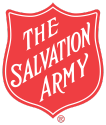At the end of June 2024, 122.6 million people worldwide remained forcibly displaced due to persecution, conflict, violence, human rights violations or events seriously disturbing public order. This represents an increase of five per cent, or 5.3 million people, compared to 2023 (UNHCR). The number of displaced people has increased steadily every year for the last 13 years.
Since its founding, The Salvation Army has sought to alleviate human suffering without discrimination. The Salvation Army works internationally to meet the needs of people fleeing conflict, violence, persecution, natural disasters and poverty by providing food, shelter and counselling, and attending to many other basic needs. We also support international efforts to eliminate persecution and displacement through the promotion of peace, tolerance, understanding and respect for human life and dignity.
God’s hospitable loving concern for the stranger and foreigner are evident in Scripture. The Salvation Army contends that individuals and governments should act compassionately and humanely towards people seeking asylum or refuge or displaced people. Read The Salvation Army’s International Positional Statement on Refugees and Asylum Seekers.
Some of the major displacement locations around the world today include Sudan, the State of Palestine, Myanmar, Afghanistan, Ukraine, Democratic Republic of Congo, Somalia, Haiti, Syria and Venezuela.
Moldova
In the first days of the Russia–Ukraine war, The Salvation Army in Bulgaria, Georgia, Moldova and Romania received an overwhelming number of requests for help. Systems for registering refugees and distributing aid had to be developed quickly.
After three years, there are different problems to tackle: local governments are less financially involved in supporting rent expenses of refugees, school supplies are needed for children living abroad, psychological counselling is still required for refugees suffering from war trauma or stress while adapting to a new place.
Supermarket vouchers are an important part of the response in many countries. This form of aid gives refugees the dignity of choice, allowing them to select products that meet their individual needs. The Salvation Army has distributed more than 400,000 vouchers.

Irina’s story
Our family, with three children, a mother-in-law and a teenage nephew, arrived in Moldova from Ukraine soon after the war started in March 2022 and settled with distant relatives. In the beginning, we didn’t seek any help; we didn’t even realise that anyone could (and especially ‘should’) be helping us, and we relied only on our own resources. About a month later, news began to spread through our hosts and neighbours that refugee aid centres were opening here and there, offering food, clothing and hygiene products. We arrived with just a few small bags, and we were grateful for any assistance, accepting it with gratitude and some embarrassment. It was still hard to accept that we were now ‘refugees’.
I learnt about The Salvation Army in the summer of 2022. I remember the building in Chekanah, where they were handing out vouchers to support refugees. By the autumn of 2022, my nephew and mother-in-law returned to Odessa. I stayed in Moldova with my children and we rented an apartment in October of that year and have been staying in Chisinau ever since.
I am very grateful to The Salvation Army. This church has been regularly supporting Ukrainian refugees in Moldova for the entire three years, and it was the first to fully transition to vouchers as the most convenient form of assistance. I look back warmly on the many kinds of help we received from The Salvation Army. Vouchers for food, household cleaning and hygiene products, clothing and furniture and home goods. My children live and grow surrounded by things that we received thanks to The Salvation Army. I hope to take them with us when we can return to Odessa, back to our home. Each piece of assistance from The Salvation Army is not only an opportunity to save money from the family budget but often means we can buy things we previously couldn’t afford – things like household items or furniture, simply because we didn’t have the extra money. I can confidently say that thanks to The Salvation Army, our quality of life has improved.
Additionally, my eldest son received a backpack with school supplies and is currently attending Scout training. He goes there enthusiastically, and I hope that this summer, the Scouts will have a children’s camp and exciting nature trips.
After three years in Moldova, I think that the needs of Ukrainian refugees haven’t changed much. Although most have found jobs, the necessity of paying for housing and high utility bills still forces us to constantly think about saving. Every voucher amount we receive from The Salvation Army and spend on food or clothing means that money stays in our wallet and can be used for other necessary expenses. And for this, The Salvation Army deserves deep heartfelt thanks!
Galina’s story
In May 2022, I arrived in Chisinau from Odessa with my sister and our children (a one- and two-year-old). I first encountered The Salvation Army when I received food vouchers in Rîșcani.
A little later, our refugee group began looking for volunteers to help at the building in Botanica. I offered my assistance, and since then, I’ve been a member of the volunteer team under the leadership of Lieutenant Marina Egorova.
As a mother, I am very grateful to The Salvation Army for providing invaluable help in the form of food vouchers and vouchers for clothing through the Back to School programme.
Our children are school-aged, and my sister and I truly appreciate the vouchers, especially before the school season starts when we can buy school supplies and new clothes for our children.
Thank you so much for all the help you provide us.
